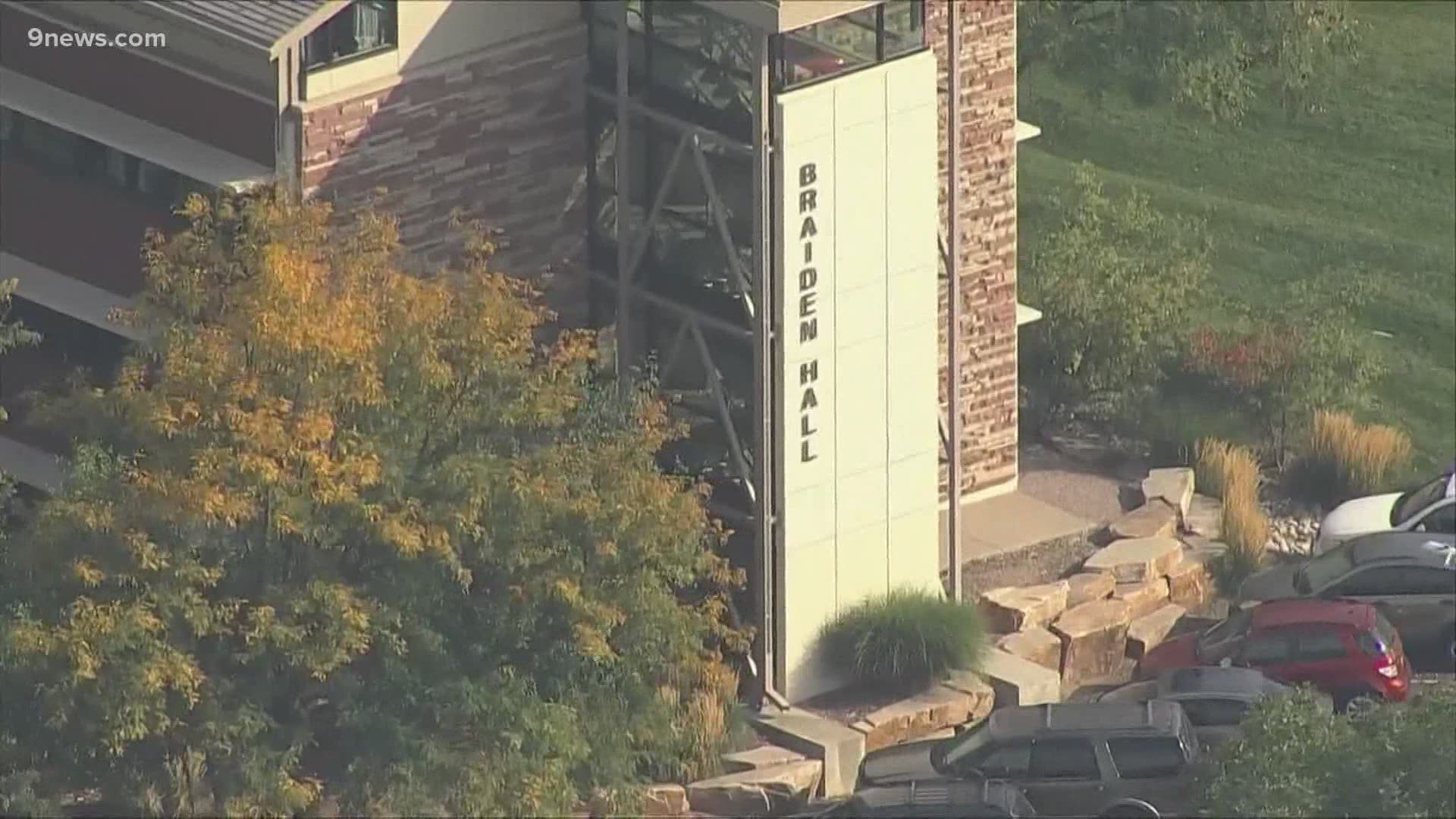FORT COLLINS, Colo. — Students at two Colorado State University residence halls have been told to quarantine after officials detected a “significantly high level of COVID-19 in the wastewater.”
That’s according to a letter distributed to students in Braiden and Summit halls on Thursday night, and which was first reported on by the Rocky Mountain Collegian.
People who live in these two halls have been placed into mandatory quarantine, which means they are barred from leaving for any reason, the letter says.
“The quarantine will be in place until all positive cases and close contacts in the residence halls have been identified and the wastewater results return to normal,” the letter reads.
“You should not leave your residence hall room, except for limited circumstances, such as to pick up a meal as outlined below or get tested at the tent outside of your residence hall,” the letter goes on to say.
The letter also warns students not to go home during the quarantine or stay elsewhere. They were told they will likely be in quarantine for a “period of time,” and that students who test positive for the novel coronavirus will be moved into isolation.
Lori Lynn is the Executive Director of the CSU Health Network and co-chair for the university's Pandemic Preparedness team.
She explained the true number of COVID-positive cases from those residence halls won't be known until they get test results back, but the wastewater tests are an "early indicator."
"Often times when individuals are developing with the virus, they shed at a higher level then typically when you’re actually infected," Lynn explained. "So its an early warning signal for us that there may be something going on. If we identify that there’s a sharp spike, we want to go in and do our testing and have opportunity to identify those individuals before they have the chance to spread it to other individuals."
CSU said there are about 900 students, mostly freshman, living in those two dorms. They will be tested on Saturday.
Students who test positive will be isolated or quarantined, and connected with contact tracers. Students who test negative will remain in quarantine. CSU plans to conduct additional testing, and review the wastewater, before lifting the restrictions.
"Unfortunately, when you're exposed, you don’t immediately have a detectable viral load. We could have false negatives," Lynn explained.
"So we’ll want to do additional testing next week and also see what's happening with that wastewater signal. Once we remove those positive [cases], does it go back down? So, it will be a combination of factors before we release those students to go back to their normal routine."
While in quarantine, students must stay in their residence. Lynn said case managers will help them transition to remote-only learning.
CSU said it expects compliance, praising most students for their cooperation up to this point. However, non-compliance could result in university discipline, Lynn said.
"Our approach so far, really, as been around education and social norming. If we need to, we have a COVID policy which requires students follow public health guidelines and guidelines from the university. So we could do the student conduct route, if need be," she said.
"But we really anticipate that vast number of students will comply. And as we’ve done contact tracing and addressed positives in the past, really, the students have been really good about understanding the need to isolate or quarantine. And I anticipate they’ll have the same behaviors with this quarantine and give us a chance to figure it out."
In a letter to the university, President Joyce McConnell said she was not certain what these quarantines mean for the university community.
"The benefits of our wastewater early detection and rapidly-deployable onsite testing are that we can—and hope to—identify a relatively small COVID-19 outbreak, address it with medical care, and contain it through self-isolation and contact tracing of positive cases," she wrote. "So, while this new development is concerning, we remain hopeful that our community’s commitment to following public health precautions will help us stay open on campus. We are not interested in blaming anyone or pointing fingers; we just want to address our situation and get everyone healthy."
According to CSU’s website, there have been 304 positive COVID-19 cases at the university since class began in August. Following a spike of 21 reported student cases on Sept. 18, the university’s dashboard says only three cases were confirmed on Wednesday, when data was last reported.
This comes after surges in cases at college campuses around Colorado have prompted new public health orders, notably in Boulder, which is home to the University of Colorado and now the largest COVID-19 outbreak in the state.
According to CU’s online dashboard, there have been 997 positive or probable cases of COVID-19 at the university as of Friday. Because of this, the city of Boulder has issued a public health order banning gatherings of 18 to 22-year-olds.
Editor's note: An earlier version of this story incorrectly stated the number of cases at CU. It has since been updated.
SUGGESTED VIDEOS: COVID-19 Coronavirus

